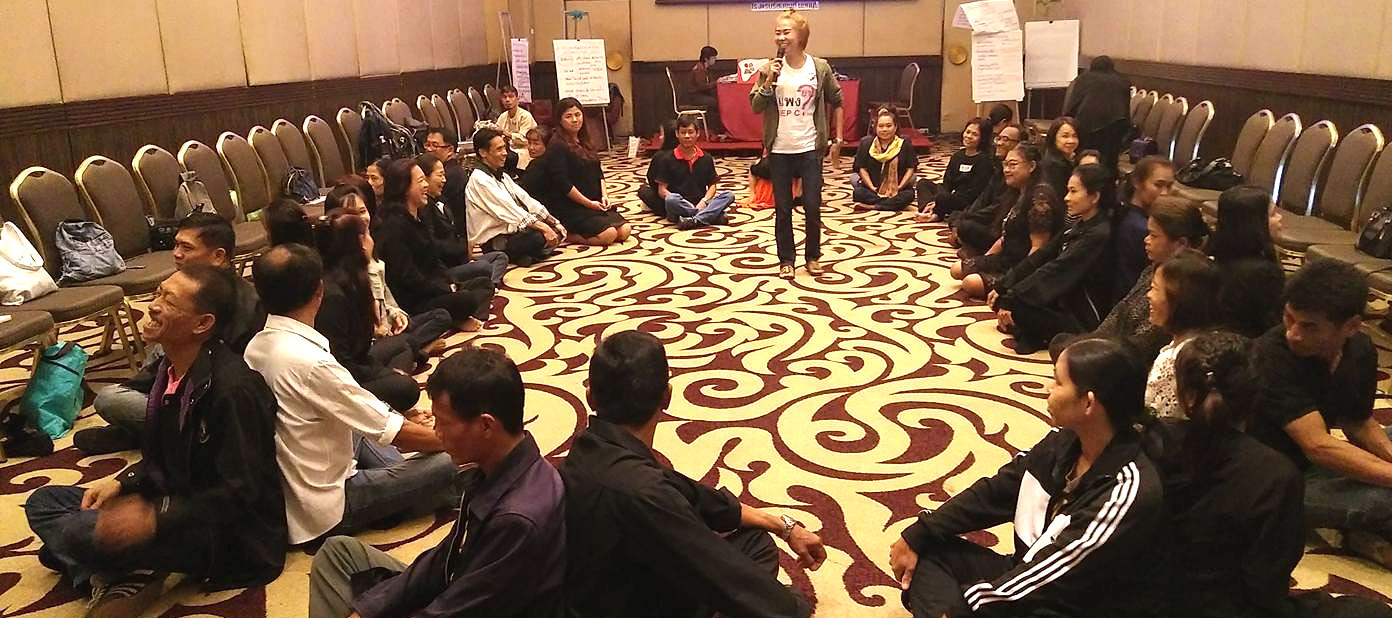 Community groups and government hospital staff from eight provinces met to review access to medicines on 15 and 16 November. The meeting reviewed progress in the promotion of access to Hepatitis C (HCV) treatment project. Hospital staff came from Chiangmai, Chiangrai, Lampang, Srisakate, Trad, Ayuthaya, Songkhla, and Narathiwat)
Community groups and government hospital staff from eight provinces met to review access to medicines on 15 and 16 November. The meeting reviewed progress in the promotion of access to Hepatitis C (HCV) treatment project. Hospital staff came from Chiangmai, Chiangrai, Lampang, Srisakate, Trad, Ayuthaya, Songkhla, and Narathiwat)
Community Groups and Hospitals Review Progress
The stakeholders looked back over the last year to assess the effectiveness of strategies for promoting access to treatment. The meeting elicited comments and feedback regarding successes, existing and newly-emerging challenges for HCV screening, case referral and treatment. Those gathered considered what factors contributed to the successes, and identified remaining barriers, such as how available policies were implemented, were gaps in translating policies into practices, and how well implementation of HCV screening and treatment at the community level.
Hospital Staff from Eight Regions Commit to Improvements
At the end of the meeting all eight project sites presented their way forward for what they want to do and achieve over the next 12 months. Several common plans emerged from all the groups. These were:
- Increase the anti-HCV screening rate in the target groups to between 75 to 100% of the total population. Up until now 71% received anti-HCV test of 17,000 in the 6 provinces. Also to increase the HCV viral load test (RNA PRC/VL). At present only 120 (out of 513 with anti-HCV+ result received the RNA/VL test;
- Improve clarity in the reimbursement system of laboratory test costs between community hospitals, provincial hospitals, and the National Health Security Office;
- Establish a case referral between the community hospitals and the provincial hospitals in a systematic and practical way. This will include roles and responsibilities of those hospitals in providing screening, case monitoring, as well as treatment;
- Amend the existing criteria and requirements in the policies preventing people from HCV screening test and treatment; and,
- Advocate with key policy makers for better HCV treatment and challenging patent barriers to new HCV direct-acting antiviral drugs.




